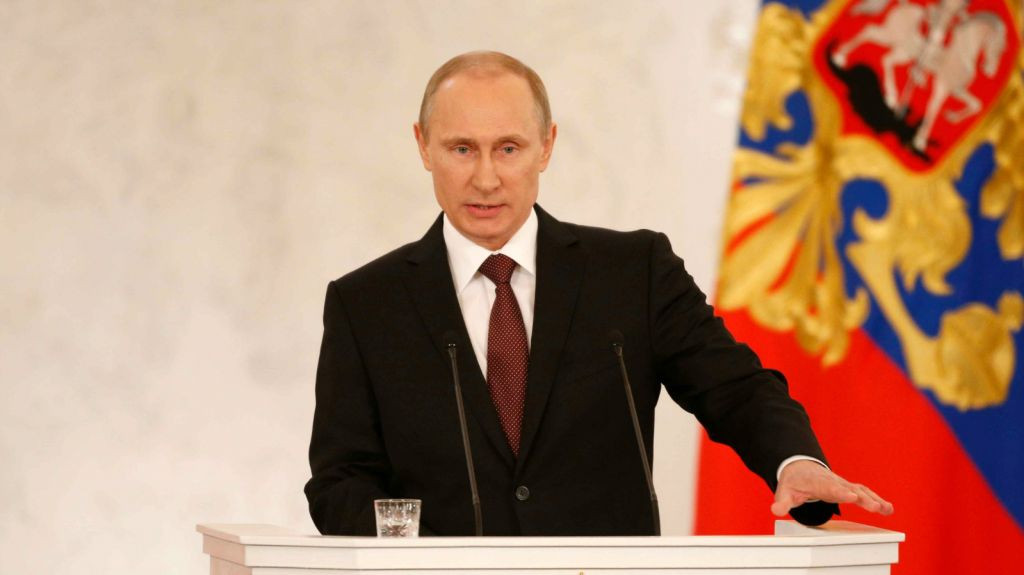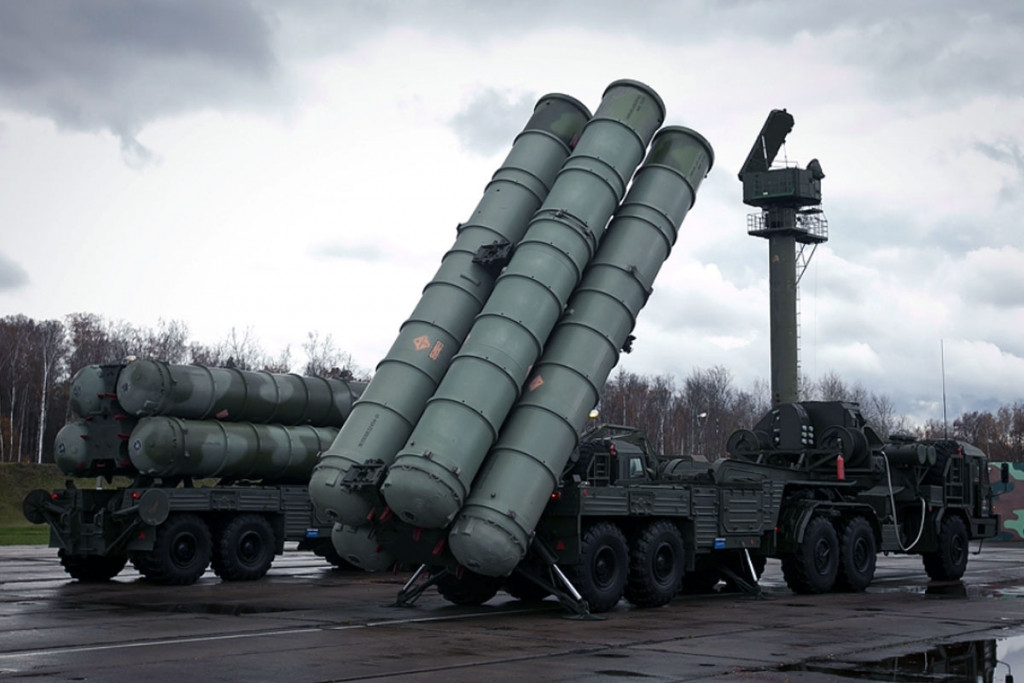President Vladimir Putin warned Thursday that Russia can again build up its forces in Syria “in a few hours” if necessary, and will continue striking extremist groups.

Putin, who ordered a partial withdrawal of Russian warplanes from Syria earlier this week, said on a meeting with Russian military serviceman in the Kremlin, that Russia’s air defense systems will remain on permanent combat duty in Syria and will be used against any target that is considered as a threat to the country’s military.
“Our bases in Syria at Tartus and Hmeimim and their personnel that will remain on duty there will be well-protected on the ground, on the sea and in the air. All components of the deployed air defenses, including Pantsir-F near range systems and long-range systems Triumf S-400 will be on permanent combat alert,” Putin said.

He also emphasized on the statement that Russia has intention to keep strong military presence in order to keep the freed territories in Syria after the 5-month campaign. According to the Russian president, the Syrian campaign has demonstrated the country’s ‘’leadership, will, and responsibility’’ in ‘’preventing the growth of a tumor of terrorism’’.
In the last 5 months, more than 9,000 combat mission have been conducted, beginning on 30 September. This allowed the Syrian army ‘’to gain strategic initiative’’.
Putin described the mechanism of air incidents prevention, created in cooperation with the United States, as very effective.
He promised further support for the legitimate government of Syria.
“It is comprehensive: financial assistance, supplies of weapons and armaments, intelligence support, and staff assistance in planning operations. Lastly, there is immediate, direct support, I mean the aerospace group and attack and fighter aircraft,” Putin said, adding that the Russian forces remaining in Syria would be enough to cope with the tasks set to them.”
The Russian president voiced hope that the partial withdrawal of Russian forces from Syria would help Syria peace talks that began in Geneva on Monday.
While praising cooperation with the US in negotiating the truce, Putin warned that the Russian military remaining in Syria would be ready to act against any groups that would violate the cease-fire.
“If it becomes necessary, Russia is capable of building up its groups of forces in the region to the level required by the situation in literally a few hours and use our entire arsenal,” he said.
He also said the Syrian army will continue its offensive on Palmyra and drive out the IS forces controlling it.
Putin said that “all interested nations have been warned” about Russia’s intention to destroy any target that would threaten the Russian military. Even though he didn’t mention any country in particular, the warning appeared directed at Turkey, which downed a Russian warplane at the Syrian border in November.
“No one has the right to violate the airspace of a sovereign country, Syria,” he said.
Written by Yoana Manoilova for South Front




In the context of the warning issued by Vladimir Putin, it is interesting to observe an Israeli report by Debka that relates specifically to Russian defensive architecture in Syria:
“The Russians plan to remove the advanced S-400 air defense missiles from Syria, leaving behind only the Pantsir-S1systems, which are easy game for the Israeli air force.” (Russia to keep S-400 in Syria until Saudi warplanes leave Turkey, March 16, 2016)
As part of its involvement in ongoing allied proxy warfare operations, Israeli sources reveal intentions to overcome Russian defence systems if necessary to facilitate further strikes against Syria. This follows other reports that openly state that Israel considers the Russian Federation an adversary (reports that relate to developing capabilities/technology/tactical strike methods to neutralise all Russian defensive missile systems). These efforts are being conducted in collaboration with U.S./NATO counter-parts as revealed by the Jewish Institute for National Security Affairs.
As Turkey, Saudi Arabia and Israel (and to a lesser degree other coalition bloc members) are seemingly uncompromising in their regime change objective, a more robust response to their desire to gradually intensify/expand operations may in time be necessary. Fortunately, it is evident the Russian Federation is prepared for all potential scenarios and to respond accordingly.